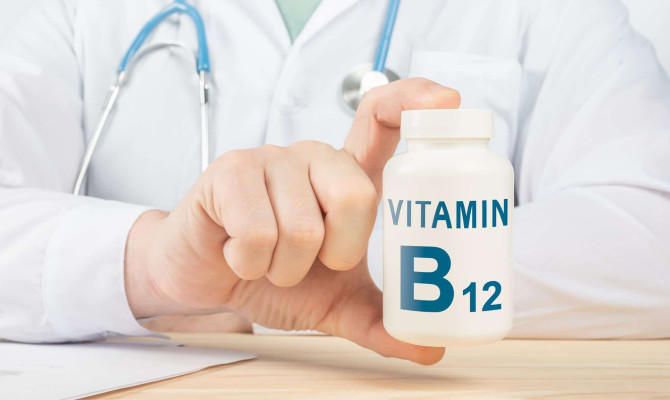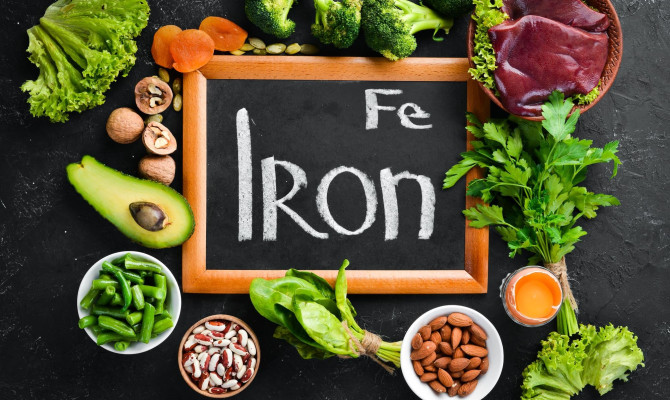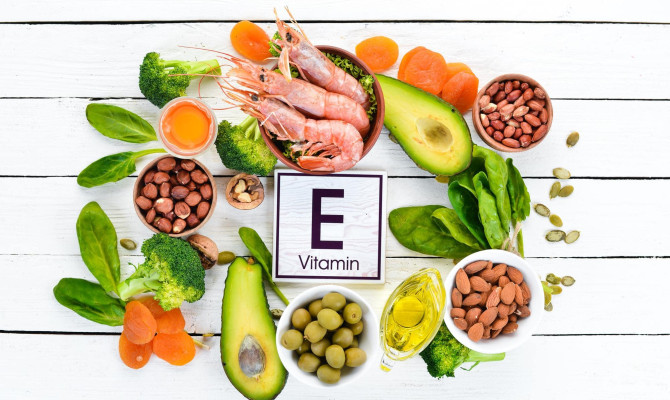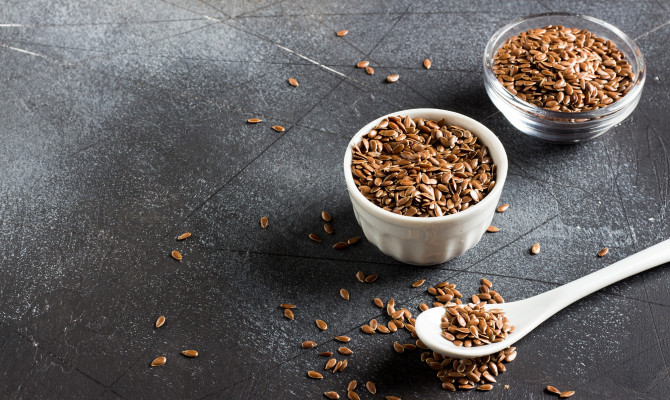Vitamin D and its health benefits

- Vitamin D
- 14 Aug 2023
Overview
What is vitamin D?
Vitamin D (calciferol or sunshine vitamin) is a fat-soluble vitamin produced by our body naturally or that can be obtained from certain foods in the environment.
Facts about vitamin D
- Vitamin D can be obtained from direct sunlight, diet and health supplement. Vitamin D health supplement tablets are available in two kinds- cholecalciferol (vitamin D3 ) and ergocalciferol vitamin D2)
- Vitamin D2 is produced naturally in fungi and plants
- Vitamin D3 is produced naturally in humans and other animals
- Vitamin D is produced in our skin internally when the ultraviolet rays of the sun fall on our skin’s surface
- Vitamin D obtained from diet or sunlight is always inactive inside our body. Within our body, the following reactions are required for its activation-
- In the liver, the first vitamin D hydroxylation reaction (C-H bond converts to C-OH bond) takes place by the enzyme(proteins to make the response faster) vitaminD-25-hydroxylase to form 25 hydroxy vitamin D or 25(OH)D and is the primary form flowing in our blood.
- In the kidney, a second hydroxylation reaction forms the active vitamin D (1,25 dihydroxy vitamin D) required for bodily functions such as calcium and phosphorus absorption 1Facts about vitamin D | Researched based study from Nlm.nih.gov .

Deficiency
Deficiency symptoms of vitamin D
Symptoms in children
- Bone pain
- Muscle weakness
- Joint pains
- Joint deformities
Symptoms in adults
- Extreme muscle weakness
- Muscle pain and stiffness
- Extreme tiredness
- Remaining stressed
Diseases due to vitamin D deficiency
Osteoporosis disease
Characteristics are:
- Weak bones
- Brittle bones
Rickets disease
Rickets occurs in children with following characteristics
- Abnormality in bone development
- Soft and weak bones
- Bone pain
- Bone deformities
Osteomalacia disease
Osteomalacia occurs in adults with following characteristics
- Soft and feeble bones
- Bones bend and crack
- Severe bone pain
- Muscle weakness 2Diseases due to vitamin D deficiency| Researched based study from Nlm.nih.gov
Dosage
How much vitamin D does our body require?
- People between 1 to 70 years of age require around 600 IU(International unit, and one microgram of vitamin D =40IU ) of vitamin D
- While for older people above 70 years, the required amount is 800IU
Sources
Food sources rich in vitamin D
- Sardines
- Herrings (type of small fish)
- Salmons
- Shrimp
- Swordfish
- Red meat
- Beef Liver
- Egg yolk
- Mushroom
- Oatmeal
- Cereals
- Milk (cow)
- Soy milk
- Cheese
- Yogurt
- Orange juice
- Kale (leafy cabbage)
- Cod liver oil (available as a health supplement)
- Canned tuna (fish) 3Food sources rich in vitamin D| Researched based study from Nlm.nih.gov
Benefits

Health benefits of vitamin D
Enhances the body’s immune system
- Prevent infections from bacteria and viruses
- Reduces swelling and redness
- Activating enzymes and vitamin D receptors are present on the surface of white blood cells maintaining the immune system activities.4Health benefits of vitamin D | Researched based study from Nlm.nih.gov
Helps form stronger muscles and bones
- Controls and adjust the calcium and keep up the blood phosphorus level.
- Stimulate the intestine to absorb the calcium and helps in mineralization of bones.
- However, the intestine’s unabsorbed calcium is excreted by the kidneys. 4 Health benefits of vitamin D| Researched based study from Nlm.nih.gov
Lowers diabetes risk
- Vitamin D lowers blood sugar levels.
- It helps control the hormones; insulin (a hormone that allows blood glucose to enter muscle, liver and fat) and glucagon (a hormone that stimulates glucose production in the liver) 5Health benefits of vitamin D | Researched based study from Sciencedirect.com
Lowers risk of certain diseases
- Vitamin D slows down the tumor formation.
- Prevents diseases like arthritis and Parkinson’s disease.
Maintains good oral health
- Vitamin D absorbs calcium and phosphate, essential in building stronger tooth enamel
- It prevents tooth decay
- It re-establishes the tooth enamel layer destroyed due to dietary deficiency.
- It maintains the tooth dentin(a portion of the tooth below the enamel) 2Health benefits of vitamin D | Researched based study from Nlm.nih.gov
- It Enhances the mineral and deposits calcium in the bones
Maintains the mental health
- Enhances the mood and prevents mood changes
- Prevents depression 5Health benefits of vitamin D| Researched based study from Sciencedirect.com
Healthy Heart
- Maintains the health of heart
- Prevent heart attacks
- Prevent serious heart diseases by reducing inflammation.
For growth and development
- It increases the testosterone (male sex hormone) and serotonin(a hormone that helps keep a good mood) hormone levels.
- It affects fat cell formation and fat storage
- It helps in good infant health
- Vitamin D absorbs the calcium and phosphorus required to maintain strong bones and teeth in infants. 4Health benefits of vitamin D | Researched based study from Nlm.nih.gov
Helps maintain a healthy pregnancy.
- It helps in absorbing the correct amount of calcium and phosphorus required for developing a baby’s healthy teeth and bones as well as in healthy organ development such as heart and kidney.
- It prevents delivering premature babies
Prevent early death
- Adequate vitamin D in the body helps in living a longer life
Prevent multiple sclerosis disease
- Vitamin D slows multiple sclerosis disease (a disease of the spinal cord and brain) progression.
- Lowers the multiple sclerosis disease risk 4Health benefits of vitamin D | Researched based study from Nlm.nih.gov
Some newer health benefits of vitamin D
- Reduction of long-term pain
- Giving birth to healthy babies with good birth weight
- Reduction of old age mental decline
- Having less frequent asthma (disease-causing breathing difficulty) attacks
- Reduced common cold infections
- Fast recovery after surgery 5Health benefits of Vitamin D| Researched based study from Sciencedirect.com
However, more vitamin D research is required to validate the above newer benefits.
Adverse effects
Adverse effects of vitamin D
Too much of vitamin D intake can lead to
- Nausea and vomiting
- Stomach pain
- Anxiety
- Dehydration
- Weight loss
- Extreme weakness
- Lethargic
- Constipation
- Heart problem
- Kidney malfunctioning
Vulnerability
People at risk of vitamin D deficiency
Home confined people
- Lack of sun exposure causes vitamin D deficiency
- People in indoor jobs often suffer from such deficiency
Growing Age
- Vitamin synthesis decreases with increasing age.
- Aged people over 65 are at increased risk of vitamin D deficiency.
- Sometimes, breastfed babies also suffer from Vitamin D deficiency as breast milk only contains a slight amount of vitamin D
Skin color
- Dark colored skin people suffer from vitamin D deficiency
- In dark colored skin people, vitamin D synthesis is more complex than light colored skin people
People with bowel disease
- Vitamin D is a fat-soluble vitamin; its absorption depends on the intestine’s ability to absorb fat.
- Incorrect fat absorption in bowel disease leads to vitamin D deficiency
People living on vegetables
- Most Vitamin D-enriched food is animal products like eggs and fish, so people with a vegetarian diet will likely suffer from Vitamin D deficiency.
People with severe headaches
- Research has found that people with regular headaches suffer from vitamin D deficiency. However, more research is warranted to confirm the link between headaches and vitamin D.
People with increased weight
- Obese people often have vitamin D deficiency because the body fat obstructs the vitamin D circulation in the blood. But this is true in some cases.
People taking certain medicines
Certain medicines cause vitamin D deficiency. They are
- Certain weight-controlling drugs (orlistat),
- cholesterol-lowering drugs(cholestyramine)
- certain corticosteroid drugs (prednisone)
- Anti-seizure drugs (phenytoin)
Prevention
Prevention of Vitamin D deficiency
- Taking adequate vitamin D in the diet
- Taking daily morning sunlight
- Consuming vitamin D fortified (enriched) food
- Taking multivitamins containing vitamin D.
However, it is always recommendable to consult a physician for enough vitamin D.
Any feedback on this article?
 This Articles content was accurate
This Articles content was accurate Very Informative Article
Very Informative Article I have a question or a comment
I have a question or a comment
 This article contains inaccurate content
This article contains inaccurate content This article was not helpful
This article was not helpful I have a question or a comment
I have a question or a comment
We appreciate your helpful feedback!
Checkout our social pages
References
-
National Library of Medicine
Vitamin D: The “sunshine” vitamin | Facts
-
National Library of Medicine
Vitamin D Deficiency, Prevention and Treatment | Deficiency | Prevention
-
National Library of Medicine
Vitamin D Sources, Metabolism, and Deficiency: Available Compounds and Guidelines for Its Treatment
-
National Library of Medicine
Benefits and requirements of vitamin D for optimal health: a review | Benefits
-
Science Direct
Vitamin D and health - The missing vitamin in humans | Benefits




































